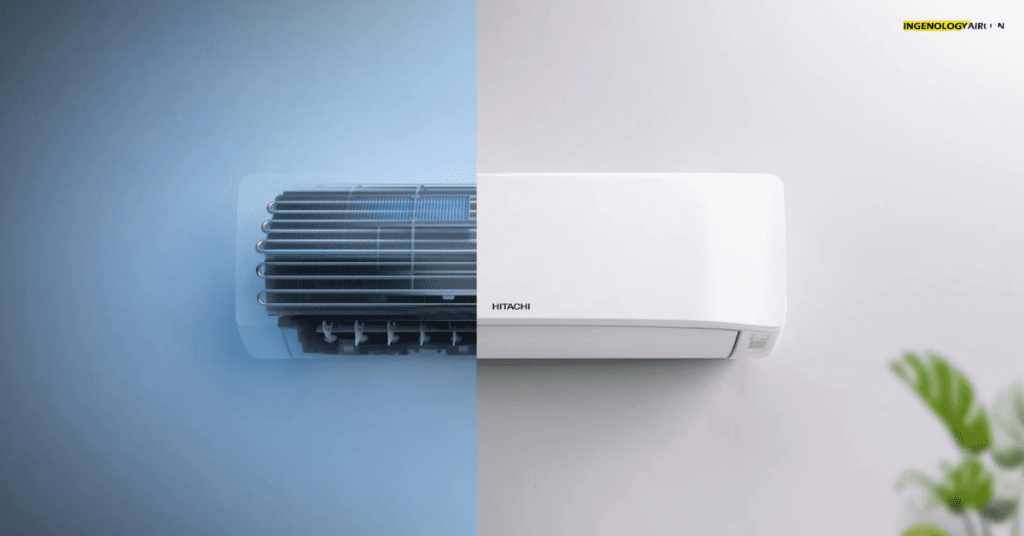Our beloved air conditioners are indispensable in ensuring a refreshing and pleasant indoor atmosphere, especially amidst the scorching summer heat. Nevertheless, akin to any mechanical device, air conditioners are susceptible to malfunctions, with overheating being a prevalent issue. Delve into this article to uncover the primary causes behind air conditioner overheating and gain insights into preventive measures and solutions.

1. Prolonged Operational Hours
Extended periods of continuous operation can push your air conditioner to its limits, culminating in overheating. Allocating intermittent breaks for your aircon to cool down is imperative to prevent this occurrence.
2. Inadequate Refrigerant Levels
Insufficient levels of refrigerant impair the optimal functioning of your aircon, leading to overheating. Whether due to low levels or leakage within the system, inadequate refrigerant hampers the efficient removal of heat from your living space. Consequently, the compressor may strain and overheat. If you’ve recently refilled the refrigerant gas and notice a decline, promptly address potential leaks with professional servicing.
3. Inappropriate Condenser Placement
Strategic placement of the condenser unit outside your dwelling in an unobstructed area is vital for efficient heat dissipation. Congested surroundings impede proper heat release, often resulting in overheating.
4. Deteriorated or Clogged Air Filters
Dirty or obstructed air filters are among the leading causes of air conditioner overheating. These filters play a crucial role in trapping dust, dirt, and debris, thus safeguarding the system. However, when laden with impurities, they impede airflow, forcing the air conditioner to exert more effort in cooling the space. This heightened workload can trigger overheating. Regular aircon servicing, including cleaning or replacement of air filters, is imperative to uphold unimpeded airflow and avert overheating.
5. Obstructed or Faulty Evaporator Coils
The condenser coils in the outdoor unit facilitate the release of heat absorbed from your home. Accumulation of dirt, debris, or foliage on these coils obstructs their efficacy in heat dissipation, resulting in system overheating. Routinely cleaning the condenser coils and ensuring adequate clearance around the outdoor unit are crucial preventive measures.
Why is my air conditioner overheating?
Your air conditioner may be overheating due to various reasons such as prolonged operational hours, low refrigerant levels, inappropriate condenser placement, dirty or clogged air filters, or obstructed or faulty evaporator coils.
How can I prevent my air conditioner from overheating?
To prevent your air conditioner from overheating, you can take several preventive measures including giving it intermittent breaks during prolonged use, ensuring proper refrigerant levels and addressing leaks promptly, strategically placing the condenser unit in an unobstructed area, regularly cleaning or replacing air filters, and maintaining the condenser coils free from obstructions.
What should I do if my air conditioner is overheating?
If your air conditioner is overheating, you should first turn it off to prevent further damage. Then, you can check for common issues such as dirty air filters or obstructed condenser coils. If you’re unable to resolve the issue yourself, it’s advisable to seek professional help for diagnosis and repair.
Can dirty air filters cause air conditioner overheating?
Yes, dirty or clogged air filters can indeed cause air conditioner overheating. When air filters become laden with dust and debris, they restrict airflow, forcing the air conditioner to work harder to cool the space. This increased workload can lead to overheating of the system.
Is condenser placement important for preventing air conditioner overheating?
Absolutely! Proper condenser placement plays a crucial role in preventing air conditioner overheating. Placing the condenser unit in an open and unobstructed area outside your house allows for efficient heat dissipation, thereby reducing the risk of overheating.
Conclusion
By comprehending these underlying reasons behind air conditioner overheating, you can proactively undertake measures to mitigate risks and sustain optimal performance. Regular aircon maintenance and timely interventions are paramount in preserving the functionality and longevity of your air conditioning system.
Read our more blogs –
Optimizing Air Conditioner Performance: A Comprehensive Guide
Common Aircon Problems in Singapore & How to Prevent Them
Troubleshooting Noisy Aircon Compressor: 3 Common Causes & Solutions
Is It Safe to Keep Your Air Conditioner Running 24/7?
Key Considerations When Choosing Aircon Companies in Singapore
